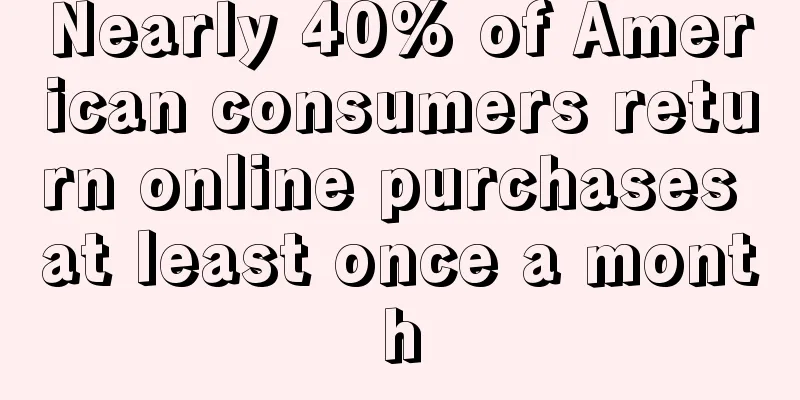A review of US advertising marketing in 2022! Search advertising gradually gains the upper hand

|
It is learned that the latest research from eMarketer shows that the growth of advertising exposure driven by the epidemic will gradually slow down in 2022, and advertising spending will fall sharply. As advertising spending is in a downturn, new trends and advertising channels are beginning to emerge.
Although U.S. advertising spending growth in 2022 is smaller than expected, it remains on track and will continue to grow until 2023.
GroupM forecasts that U.S. ad spending will grow 5.9% in 2023, down from 6.4% in June. Magna predicts a much smaller increase, from 6.3% to 4.8%. eMarketer's October forecast was for a 6.9% increase to $929.95.
Falling from its pandemic highs, coupled with economic uncertainty and ongoing issues with ad trackability, the U.S. advertising industry is in turmoil in 2022, and long-established norms are being broken. Advertisers are more cautious about allocating their ad budgets, and some long-standing advertising partnerships are beginning to falter.
Changes in major advertising channels
Companies have slashed spending on social media ads amid growing customer aversion to ads and Apple Inc.’s App Tracking Transparency policy.
These dramatic shifts have led to major changes in ad spending forecasts. eMarketer predicts that social advertising will slash $9.25 billion this year. Long-term outlook forecasts have also been lowered, with eMarketer expecting social advertising to reach $79.28 billion by 2024, down from $99.92 billion.
On the other hand, advertisers are shifting more of their budgets to search advertising. Forecasts show that search advertising will account for 28.6% of total advertising revenue in 2022, which is an important way to ensure that advertisers maximize the effectiveness of their limited advertising budgets.
The rise of search marketing has set off a fierce competition for search advertising among big tech companies. Microsoft, Apple and other companies are actively advancing in the field of search marketing in order to grab market share from the two giants, Amazon and Google.
While advertisers are unlikely to place ads on unproven channels, there is a relatively new trend that is booming: retail media networks. Countless retailers from Michaels to Instacart have launched ad delivery platforms, and the market is rapidly proliferating. U.S. retail media ad spending will grow 25.8% next year to $51.36 billion, accounting for 18.1% of total U.S. digital ad spending.
Streaming companies, eager to grow revenue and subscribers, are turning to ad-supported subscription tiers, opening new avenues for advertisers and taking share from TV.
eMarketer believes that in the event of an economic downturn, new ad technology players, brands will have the opportunity to establish themselves among consumers, and new advertising channels will have the opportunity to seize the market. Growth in 2023 will be slower than what the industry saw during the epidemic, but the recession is giving way to a new normal that will determine the future of the industry. Editor✎ Ashley/ Disclaimer: This article is copyrighted and may not be reproduced without permission. |
<<: Will the “inventory crisis” in the US retail market continue until 2023?
Recommend
Weird review request cards reappear! Sellers don’t sell goods, they only sell misery
Recently, foreign media revealed that Amazon sell...
Amazon launches new delivery method? It is being piloted on a small scale
Since Amazon restarted its replenishment restrict...
Demand for beauty products continues to grow in the United States, and these categories will be the most popular in 2023
It is learned that recently, Circana (formed by th...
What is a Return Request? Return Request Review
Return Request refers to a return request. If the ...
Inflation has suppressed Americans' shopping enthusiasm, but this category has grown against the trend!
According to the latest data from Inmar Intelligen...
What is Amazon Key? Amazon Key Review
Amazon Key is a service officially launched by Ama...
What is Fruugo? Fruugo Review
Fruugo was launched in Finland. It is an internati...
What is Big Cat Cross-border? Big Cat Cross-border Review
Big Cat Cross-border (Big Cat Cross-border Interna...
What is Catch? Catch Review
Catch is a new mobile shopping app launched by eBa...
What is Yunquna? Yunquna Review
Yunquna is a one-stop international logistics onli...
What is Jackfruit? Jackfruit Review
Bolome was founded in 2015 and entered the field t...
What is SellerActive? SellerActive Review
SellerActive is a multi-platform order management ...
Use Amazon Wishlist for secondary marketing, three ways to boost sales
Amazon Wishlist is equivalent to a shopping cart....
What is findlayrowedesigns? findlayrowedesigns review
Findlayrowedesigns is a premium gift shop and bout...
What is a Work-Related Invention? Work-Related Invention Assessment
A work invention refers to a work invention or cre...









